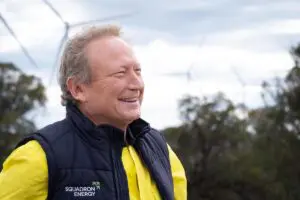The University of New South Wales (UNSW) Sydney will lead a study designed to test the viability of establishing a renewable energy-based hydrogen supply chain between Australia and Germany.
The new two-year feasibility study was awarded to the UNSW Sydney by the Australian Department of Foreign Affairs and will look for opportunities available for collaboration between Australian and German industries on the production, storage, transport, and use of hydrogen produced from renewable energy sources, also known as “green hydrogen”.
The study will also assess current technologies, as well as identify regulatory and logistical barriers, and recommend business models for the development of a two-way trade and investment partnership.
“The great renewable energy potential, infrastructure and energy exporting expertise, together with the manufacturing excellence and energy import needs of Germany, presents these countries with an ideal opportunity to establish a hydrogen value chain partnership that combines their comparative strengths and interests,” said Associate Professor Iain MacGill, who will lead the study.
“However, there are still considerable challenges, with associated uncertainties and risks, to overcome. This study will help us jointly plot a pathway to address these challenges and seize the opportunity for a vibrant renewable hydrogen sector in and across these countries, and beyond.”
The UNSW is a world-leader in the research of hydrogen and is home to the ARC Training Centre for The Global Hydrogen Economy, as well as the Hydrogen Energy Research Centre.
The UNSW ARC Training Centre for The Global Hydrogen Economy was established earlier this year after the university secured $AU4.9 million in funding from the Australian Research Council. The program will focus on a core set of priorities needed for the expansion of the green hydrogen industry.
In December of 2019, researchers from UNSW were part of a group of scientists responsible for unlocking new techniques for the production of renewable hydrogen from electrolysis, a move that could significantly reduce the costs of producing green hydrogen.
“This joint study with Germany is another example of how UNSW’s world-leading research drives job creation and economic growth by underpinning new industries,” said UNSW Deputy Vice-Chancellor, Research, Professor Nicholas Fisk.
“There are estimates that the green hydrogen industry could be worth US$2.5 trillion by 2050 worldwide. We are well positioned to capitalise on the emerging global growth of hydrogen, which will ultimately benefit the environment and our climate.”
Australia and Germany are both stepping out at the forefront of hydrogen development, having both established hydrogen strategies intended to help support and grow the development of green hydrogen as a clean source of energy.
Germany will contribute $2.4 million to its share of the joint work, while the Australian government has promised $367,000, part of Australia’s contribution of $1.1 million in cash and kind.
Australia’s Federal Trade Minister Simon Birmingham declared the feasibility study a major step forward in stablishing a hydrogen supply chain.
“Partnering with future importers of hydrogen, such as Germany, will be critical to growing demand for Australian hydrogen and accelerating industry development,” Birmingham said.
“This study will help build on existing hydrogen collaborations Australia has with other key energy trading partners including Japan, the Republic of Korea and most recently Singapore, all of which will be critical to building a world-leading hydrogen industry right here in Australia.”
Federal Energy and Emissions Reduction Minister Angus Taylor said the study would help pave Australia’s path to becoming a powerhouse in hydrogen production and exports.
“This international partnership will help to lower the price of hydrogen, which will get us closer to our goal in the Technology Investment Roadmap of producing hydrogen for under $2 per kilogram.”







